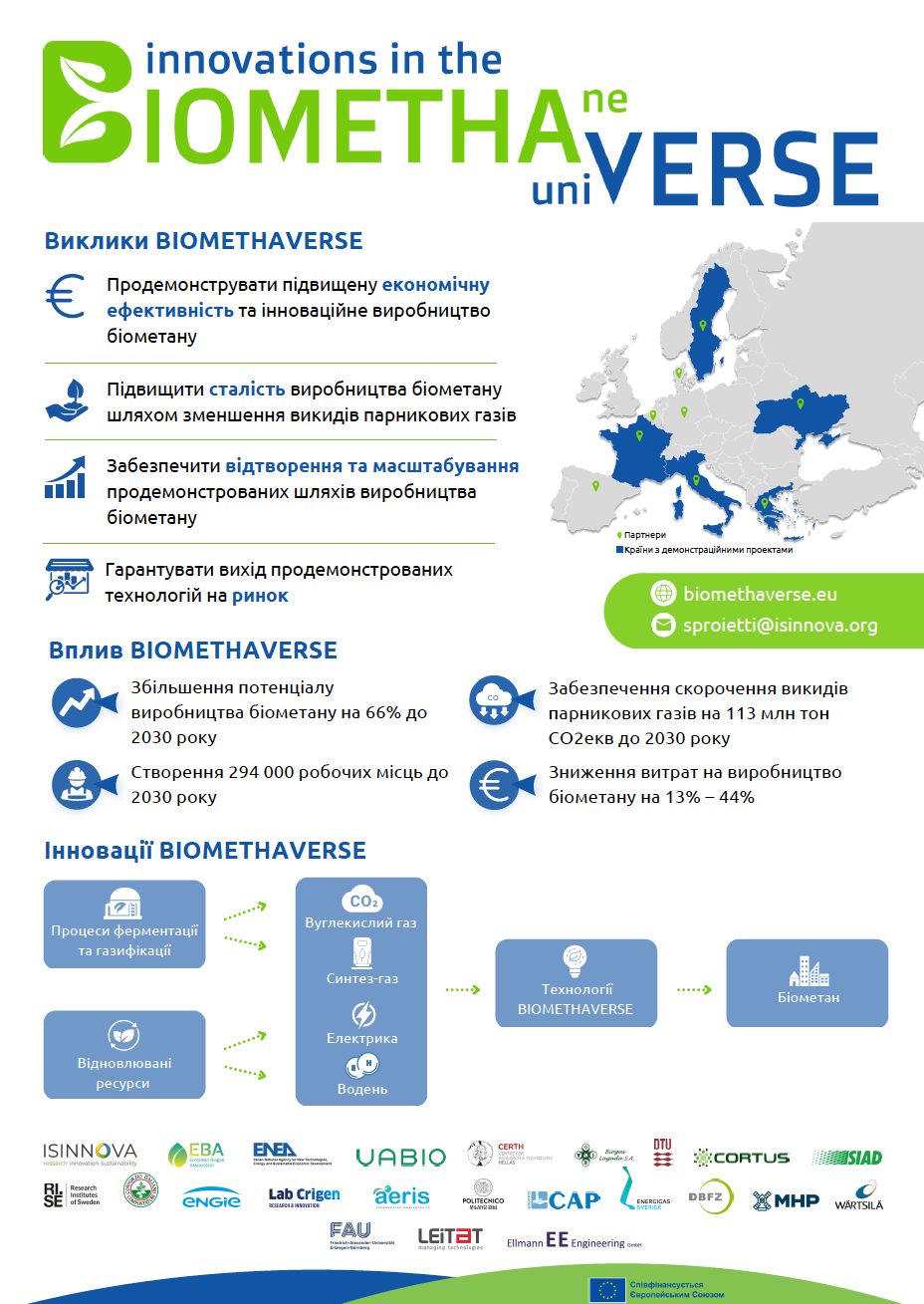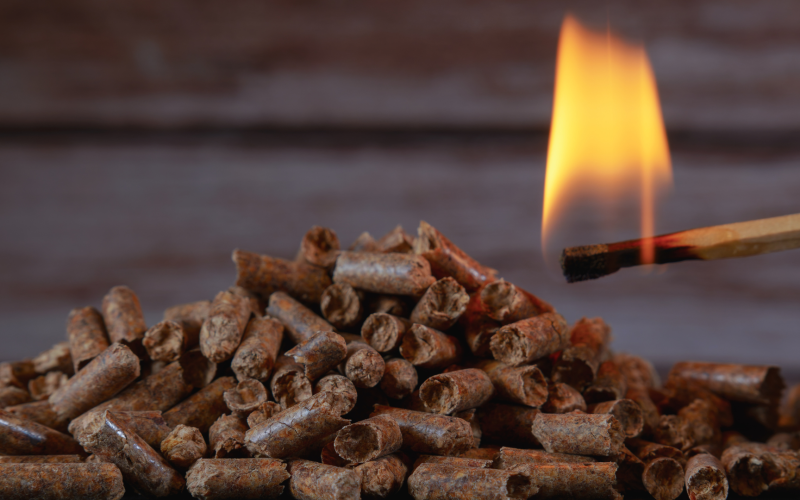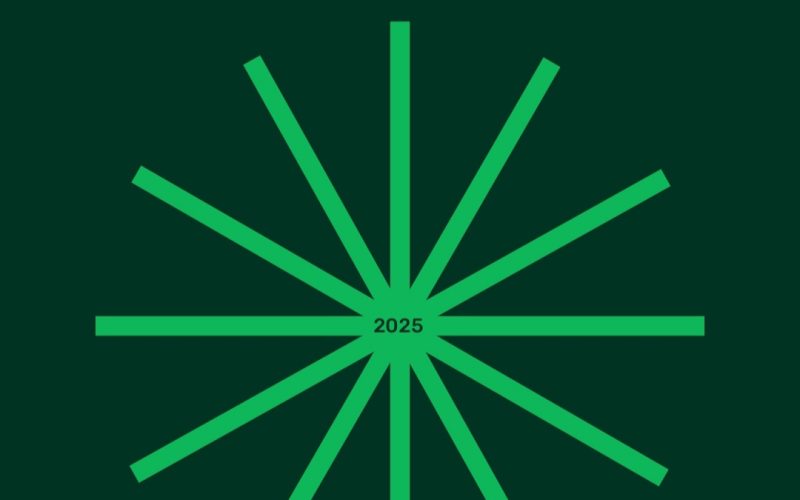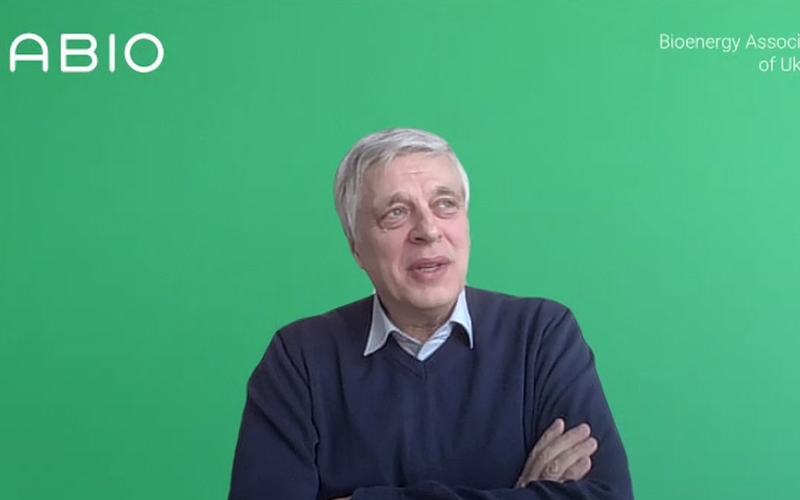BIOMETHAVERSE: Ukraine participates in a large-scale project aimed at increasing biomethane potential in Europe by 66%
BIOMETHAVERSE (Demonstrating and Connecting Production Innovations in the Biomethane Universe) sets out to diversify the technology basis for biomethane production in Europe, increase its cost-effectiveness and contribute to the uptake of biomethane technologies.
To this aim, 5 innovative biomethane production pathways will be demonstrated in five European countries: France, Greece, Italy, Sweden and Ukraine.

The project is aimed at achieving the following goals:
- Demonstrate increased economic efficiency and innovative biomethane production.
- Increase the sustainability of biomethane production by reducing greenhouse gas emissions.
- Ensure the replication and scaling of demonstrated biomethane production pathways.
- Guarantee market entry of demonstrated technologies and develop policy recommendations.
Project production chains include one or a combination of the following production options:
- thermochemical,
- biochemical,
- electrochemical,
- biological.
Four of the demonstration plants will use anaerobic digestion (AD) as a starting point, and one will use thermal gasification.
In the BIOMETHAVERSE demonstration projects, CO2 streams from the AD process or gasification and other intermediates will be combined with renewable hydrogen or renewable electricity to increase the total biomethane yield.
All the demonstrated production chains will go beyond conventional technologies, offering a circular approach to energy and material use while reducing the overall cost of biomethane production and increasing its production.
Impact of the BIOMETHAVERSE project
- Increase in biomethane production potential by 66% by 2030.
- Creation of 294,000 green jobs by 2030.
- Reducing greenhouse gas emissions by 113 million tons of CO2eq by 2030.
- Reducing the cost of biomethane production by 13% to 44%.
The project has its own website — subscribe to the newsletter.
Ukraine as a member
Ukraine is one of the project’s strategic partners and a demonstration site. The project involves the company MHP Eco Energy, on the basis of which research will be conducted, as well as the team of the Bioenergy Association of Ukraine, whose experts will accompany the project. Therefore, we will continue to report on the progress and achievements.
The biogas plant of MHP Eco Energy has an installed electrical capacity of 12 MW, produces biogas from 330 t/d of chicken manure and other agricultural waste, producing 85,000,000 kWh of electricity per year.
The plant configuration consists of twelve reactors (9 main reactors and 3 digesters) with a volume of 90,000 m3 each.
The complex also has its own biogas pipeline, which transports biogas to a cogeneration unit located near the slaughterhouse complex to use the heat to supply steam to the latter.
Download project brochure
Pros of biomethane
Biomethane is a renewable and environmentally sustainable substitute for natural gas. It is a flexible energy carrier and fuel that can be stored and transported within the existing gas infrastructure. Therefore, biomethane has strong potential to contribute to achieving climate goals and enhancing energy security.
Biomethane production has been growing steadily over the past decade. Total biomethane production in Europe amounted to 3.5 billion cubic meters in 2021 and is expected to grow in the coming years, reaching 35 billion cubic meters by 2030 (EBA Statistical Report 2022).
The project is co-financed by the European Union. However, the views and opinions expressed are those of the author(s) alone and do not necessarily reflect the views of the European Union or CINEA. Neither the European Union nor the granting body can be held responsible for them.
Image: EBA (European Biogas Association).


